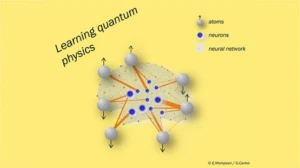Elucidating reaction mechanisms on quantum computers
We show how a quantum computer can be employed to elucidate reaction mechanisms in complex chemical systems, using the open problem of biological nitrogen fixation in nitrogenase as an example. We discuss how quantum computers can augment classical-computer simulations for such problems, to significantly increase their accuracy and enable hitherto intractable simulations. Detailed Read more

